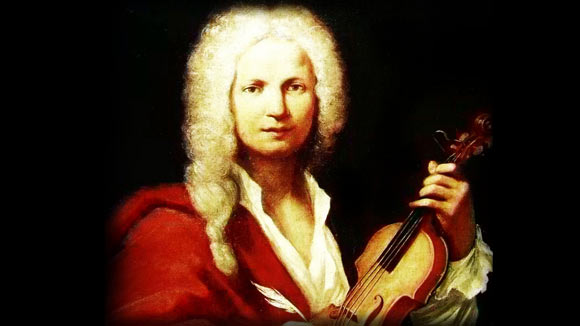
Antonio Vivaldi was a highly influential composer and violinist. He is remembered for his contributions to the Baroque genre of classical music, as well as his many operas and instrumental performances.
Antonio Lucio Vivaldi was born on the 4 March, 1678 in the capital city of Venice. Some historians believe that his mother dedicated him to priesthood because an earthquake hit the city the very same day he was born. Vivaldi was introduced to music by his own family. Vivaldi’s father, who was a professional violinist himself, gave Vivaldi lessons in playing the violin. He would accompany his father to tours and concerts, thus he drew great inspiration from him. Little is known about how Vivaldi began his formal training in composition. Some reports suggest that Vivaldi’s father was in fact trained in composition and he passed on his knowledge to his son, while others suggest that Vivaldi was trained by Giovanni Legrenzi, who was then the president of the musical society at Santa Cecilia.
Vivaldi was ordained as a priest on 1703. He was, however, exempted from Mass as early as 1704 due to his asthma. He started working at an orphanage called the Devout House of Mercy in 1703. His main obligation was to write concertos and cantatas for the orphanage’s orchestra and choir. Soon he also started teaching children how to play the violin. After having distinguished himself at his responsibilities, Vivaldi was be promoted to become the music director of the orphanage in 1716. During aforementioned time, Vivaldi composed several works, including the highly successful L’estro Armonico Opus 3, which gave Vivaldi recognition from all over Europe.
In 1713, he wrote his first opera called ‘Ottene in Villa’ which was performed in Vicenza. The performance got him the impresario position at the Teatro San Angelo, where his next opera, Orlando Finto Pazzo, was performed. Some historians state that Vivaldi was directly involved with a little over 90 operas, as either writer or impresario or both. They also state that his most successful operas were Lo Constanza Trionfante, and Farnace. In 1718, Vivaldi became Maestro di Capella of the court of Prince Phillip of Hesse-Darmstadt. It was then when Vivaldi wrote the highly acclaimed ‘Four Seasons’. These were a series of violin concertos, each of which was to depict one of the four seasons. Each concerto was coupled with a sonnet that described the scenes being portrayed in the music.
Vivaldi received great recognition for his works. During his life, he was invited to play for Pope Benedict XII. He also received several commissions from European royalty. In the last days of his life, Vivaldi received astounding praise and recognition from Emperor Charles VI. Antonio Vivaldi died on 28 July 1741. The cause of his death was unclear, though most historians state that it was his asthma that took his life. He left behind a remarkable legacy that was visible in his Baroque works, one that would inspire future greats such as Johann Sebastian Bach.